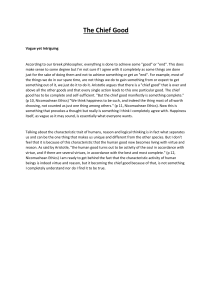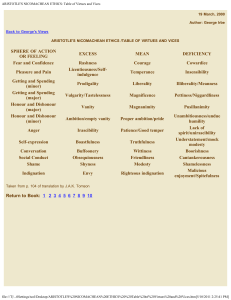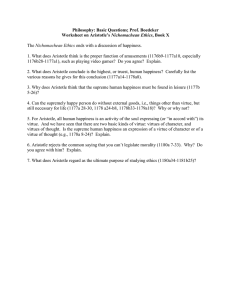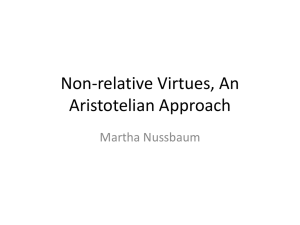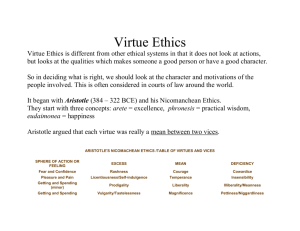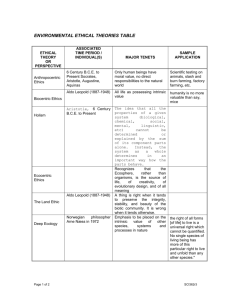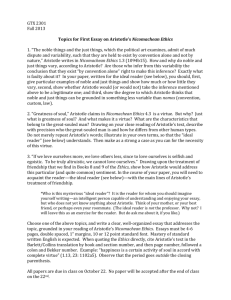Human Nature and the Good Life
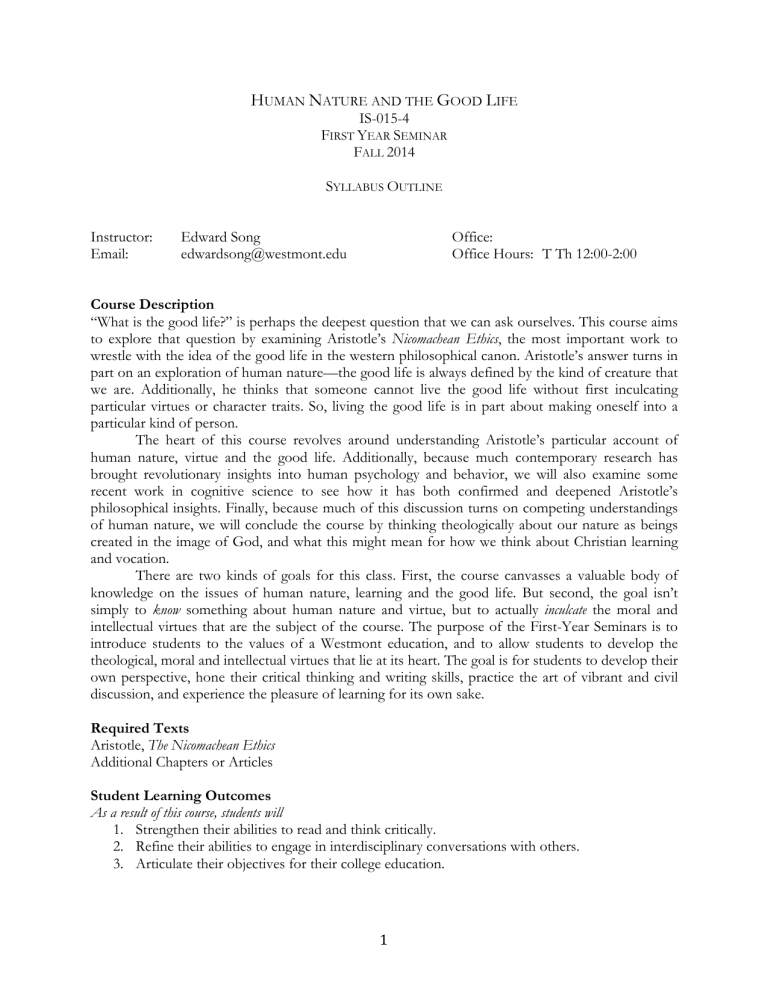
H UMAN N ATURE AND THE G OOD L IFE
IS-015-4
F
IRST
Y
EAR
S
EMINAR
F
ALL
2014
S YLLABUS O UTLINE
Instructor:
Email:
Edward Song edwardsong@westmont.edu
Office:
Office Hours: T Th 12:00-2:00
Course Description
“What is the good life?” is perhaps the deepest question that we can ask ourselves. This course aims to explore that question by examining Aristotle’s Nicomachean Ethics , the most important work to wrestle with the idea of the good life in the western philosophical canon. Aristotle’s answer turns in part on an exploration of human nature—the good life is always defined by the kind of creature that we are. Additionally, he thinks that someone cannot live the good life without first inculcating particular virtues or character traits. So, living the good life is in part about making oneself into a particular kind of person.
The heart of this course revolves around understanding Aristotle’s particular account of human nature, virtue and the good life. Additionally, because much contemporary research has brought revolutionary insights into human psychology and behavior, we will also examine some recent work in cognitive science to see how it has both confirmed and deepened Aristotle’s philosophical insights. Finally, because much of this discussion turns on competing understandings of human nature, we will conclude the course by thinking theologically about our nature as beings created in the image of God, and what this might mean for how we think about Christian learning and vocation.
There are two kinds of goals for this class. First, the course canvasses a valuable body of knowledge on the issues of human nature, learning and the good life. But second, the goal isn’t simply to know something about human nature and virtue, but to actually inculcate the moral and intellectual virtues that are the subject of the course. The purpose of the First-Year Seminars is to introduce students to the values of a Westmont education, and to allow students to develop the theological, moral and intellectual virtues that lie at its heart. The goal is for students to develop their own perspective, hone their critical thinking and writing skills, practice the art of vibrant and civil discussion, and experience the pleasure of learning for its own sake.
Required Texts
Aristotle, The Nicomachean Ethics
Additional Chapters or Articles
Student Learning Outcomes
As a result of this course, students will
1.
Strengthen their abilities to read and think critically.
2.
Refine their abilities to engage in interdisciplinary conversations with others.
3.
Articulate their objectives for their college education.
1
Tentative Course Outline
I. Learning, Faith and the Good Life
• C.S. Lewis, “Learning in War-Time”
II. What is the Good Life?
• Aristotle, Nicomachean Ethics , Book I
III. Virtue and the Good Life
• Aristotle, Nicomachean Ethics , Books II and III
IV. The Cognitive Science of Virtue
• Malcolm Gladwell, “The Statue that Didn’t Look Right,” Blink
• Daniel Kahneman, “The Characters of the Story,” Thinking, Fast and Slow
V. The Highest Good
• Aristotle, Nicomachean Ethics , Book X
VI. Human Nature in the Garden of Eden
• Genesis 1-3
• John Stek, “What says the Scripture?” Portraits of Creation
VII. Christian Vocation in a Postmodern World
• Luke 24: 13-35
• John 20: 1-18
• N. T. Wright, “Light of the World,” The Challenge of Jesus
2
